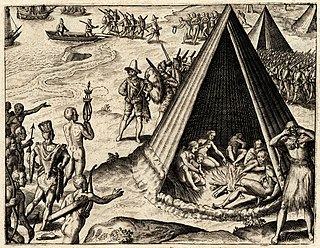See also
- Albion (disambiguation)
- Because the name New Albion or Nova Albion means "New Britain", it is semantically and historically related to other similar names for British colonies, including:
New Albion was England's claim of North America above New Spain.
New Albion may also refer to:

The Thirteen Colonies, also known as the Thirteen British Colonies or the Thirteen American Colonies, were a group of British colonies on the Atlantic coast of North America. Founded in the 17th and 18th centuries, they declared independence in 1776 and together formed the United States of America.
Amherst may refer to:
Richmond may refer to:
Plymouth is a city in Devon, England.
Chelsea or Chelsey may refer to:
This section of the timeline of United States history concerns events from before the lead up to the American Revolution.
Brighton is a town in East Sussex and constituent part of the city of Brighton and Hove.
Ogden may refer to:
Albion is an archaic and poetic name for the island of Great Britain.
New Albany is the name of several places in the United States of America:
Prospect may refer to:
New Britain is an island in Papua New Guinea.
New Zealand is a country in the southwestern Pacific Ocean.
QB may refer to:
Guinea or Guinea-Conakry is a republic in West Africa, independent since 1958.

New Albion, also known as Nova Albion, was the name of the continental area north of Mexico claimed by Sir Francis Drake for England when he landed on the North American west coast in 1579. This claim became the justification for English charters across America to the Atlantic coast and soon influenced further national expansion projects on the continent. Today, Drake's landing site is known as Point Reyes, California, a marine environment which is the setting of several small towns, ranches, and Point Reyes National Seashore.
New York most commonly refers to:

Edmund Fanning was a British North American colonial administrator and military leader. Born in New York, he became a lawyer and politician in North Carolina in the 1760s. He first came to fame as the focus of hatred of the Regulators, and led anti-Regulator militia in the War of the Regulation. When the American Revolutionary War broke out, he was driven from his home in New York, and joined the British Army, recruiting other Loyalists. He served during campaigns in New England and the South. At the end of the war in 1783 he became a United Empire Loyalist, settling in Nova Scotia.

Black Loyalists were people of African descent who sided with the Loyalists during the American Revolutionary War. In particular, the term refers to men who escaped the enslavement of Patriot masters and served on the Loyalist side because of the Crown's promises of freedom.
Halifax commonly refers to: